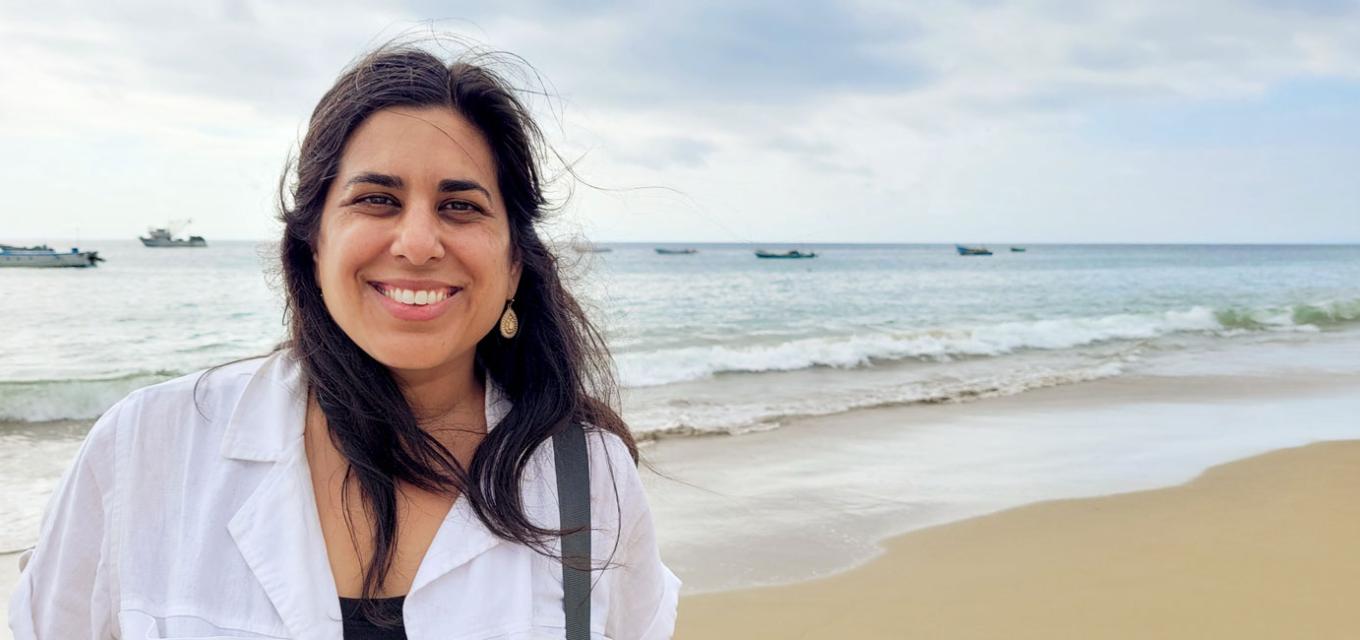2023 Fall

Giving matters: environmental education in Ecuador
OLPD PhD student conducts pilot study in the coastal province of Manabi.
In July of 2022, Neela Nandyal, a PhD student in the Department of Organizational Leadership, Policy, and Development’s Comparative and International Development Education program, visited the South American country of Ecuador.
“I was there to conduct a pilot study on the attitudes, values, and practices shaping environmental education in the coastal province of Manabí,” she says.
For nearly four weeks, she traveled to three distinct areas of Manabí: the northern coast, which was impacted by a 2016 earthquake and is home to one of the most threatened forests in Ecuador; the central region, which is rich in both small-scale and industrial agriculture; and the southern coast, which has an economy dependent on both fishing and tourism. She also spent time in Quito, which is the center of government policies for both education and government.
“I conducted 21 semi-structured interviews with local educators, conservationists, and other residents,” says Nandyal. “Questions addressed topics of environment, sustainability, ecotourism, livelihoods, environmental education, and climate change.”
Through analysis of her interviews, Nandyal identified key attitudes, values, and practices shaping environmental education in coastal Ecuador. These results are helping her identify avenues for future research and collaboration.
Nandyal was assisted on her Ecuadorian journey by the CEHD Global Graduate Grant, also known as the G3. The grant was started in the fall of 2016 through the generosity of donor Frank Braun. Its purpose is to support students working on an innovative research project in a global context. Special consideration is given to projects that require an extended amount of time working abroad, such as Nandyal’s. Her work in Ecuador was primarily supported by Robert (Bob) Moran, who donated to the grant in spring of 2020 in addition to including it in his estate plans.
“As the world grows smaller, cross-cultural understanding is essential,” Moran says. “That’s why this fund is so important. It seeks to build a better world community. Research work like Neela’s is a big step toward that goal.”
Nandyal is greatly appreciative of the assistance provided to her. “The G3 grant allowed me to conduct this pilot study, forge important scholarly and community connections, and lay the groundwork for future research,” she says. “Thank you for this extraordinary opportunity!”
-KEVIN MOE